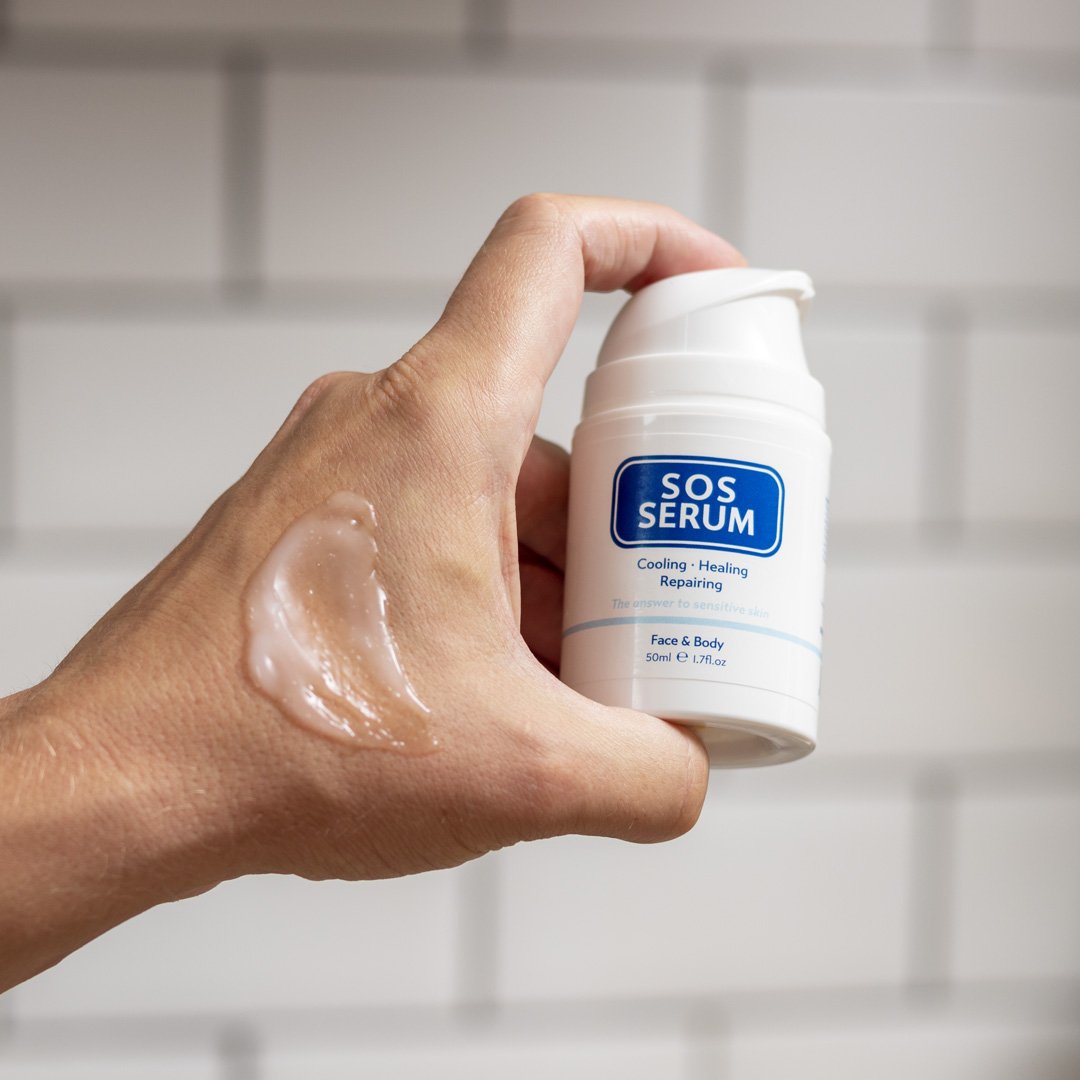CARE FOR SKIN & JOINTS THIS WORLD PSORIASIS DAY
Including expert advice on caring for psoriasis-prone skin from Chemist Bruce Green.
Around 1.1 million (1 in 50) people in the UK are thought to be affected by psoriasis – a chronic auto-immune skin disease caused by an increased production in skin cells resulting in the skin becoming red, flaky, crusty and covered in patches of silvery scales called plaques. World Psoriasis Day is 29th October 2024.
Psoriasis – the facts (according to the NHS)
•Psoriasis affects 2 in 100 people in the UK.
•It can start at any age, but most often develops in adults between 20 and 30 years old and between 50 and 60 years old.
•It affects men and women equally.
•Psoriasis is thought to happen as a result of the immune system mistakenly attacking healthy tissue.
•Severity of symptoms may vary considerably between individuals.
•Symptoms may flare up or relapse and can be difficult to predict.
•It’s important to get diagnosed by a healthcare professional so that the condition can be monitored regularly.
Psoriasis Skin – what causes psoriasis?
Skin cells are normally made and replaced every 3 to 4 weeks, but in psoriasis the process only takes about 3 to 7 days resulting in a build-up of skin cells. This is what creates the patches associated with psoriasis.
Psoriasis is non-contagious. There are a number of factors that can exacerbate psoriasis symptoms to flare up and these can vary from person to person. These include; An injury to your skin such as a cut, scrape, insect bite or sunburn (known as the Koebner response); Stress; Drinking excessive amounts of alcohol; Smoking; Hormonal changes, particularly in women (for example, during puberty and the menopause); Certain medications (including ibuprofen and ACE inhibitors – used to treat high blood pressure); Throat infections. According to the NHS in some people, usually children and young adults, a form of psoriasis called guttate psoriasis develops after a streptococcal throat infection, but most people who have streptococcal throat infections don’t develop psoriasis; Other immune disorders which cause psoriasis to flare up or appear for the first time.
How to treat Psoriasis Skin
Chartered Scientist, Chartered Chemist, Fellow of the Royal Society of Chemistry and skin care developer Bruce Green, says: “Psoriasis can manifest itself in different ways in different people so it’s really important for sufferers to get to know their skin and what triggers their psoriasis flare-ups. Treatments are determined by the type and severity of your psoriasis and the area of the skin affected.”
He continues, “Psoriasis skin can be damaged more easily, be more prone to infection, meaning it can take longer to heal. This again differs between individuals. In fact, one study revealed that ‘patients with severe psoriasis had a 63% greater risk of infection than patients without psoriasis, compared with an 18% increase for patients with mild psoriasis”.
Follow these tips to care for your skin and keep it healthy.
Bruce continues “Severe psoriasis should be diagnosed by a healthcare professional such as your GP. It’s important that you firstly, get to know and manage your triggers. Keeping a record of what triggers your psoriasis is a good first step in learning how to manage it. Learn to identify why you get a flare up and find ways to avoid situations where you tend to scratch. This knowledge will really empower the sufferer and arm you with some of the knowledge you need to manage flare-ups successfully.
The type of fabric you wear and the ingredients in your laundry detergent can make your psoriasis worse. Avoid fabric softener - the fewer residues that are left on freshly cleaned clothes the better. In addition, wear comfortable clothes which won’t irritate - cotton clothing keeps skin cool and allows it to breathe.
When washing, avoid soap and bubble bath as they dry the skin & many contain detergents which remove natural oil from the skin. Bathe or shower in tepid (not hot) water. Avoid soaking in baths for long periods as hot water may remove the natural oils from the skin. After a bath or shower, apply a cream or serum such as the SOS Serum just before your skin is dry, as this will help the product to be absorbed better.
Be selective about the products you slather on yourself. Use products that include ingredients which help calm the skin such as ‘Lauromacrogols’ which acts as an anaesthetic to soothe skin. Remember less is more in terms of the number of ingredients in a product and the amount applied! Try to treat your dry or itchy skin early, as it can make your treatment that much more effective and ensure that skin is kept hydrated on a regular basis.
If hands are affected, protect them by wearing rubber gloves when washing up or cleaning. When outside in the cold weather, choose leather or cotton gloves to protect your hands from the cold air. “
The soothing, calming SOS Serum contains anti-inflammatory Wasabi and calming Burdock Leaf Extracts and the refined extract of cooling Peppermint and Lauromacrogols which acts as an anaesthetic to soothe the skin. Together they deliver comfort, moisturisation and protection and rapid relief from a wide range of concerns such as:-
Reduced itching caused by Eczema, Psoriasis and Dermatitis
Supporting the withdrawal of Steroid Creams
Treating & Soothing bites, plant & insect stings, and minor burns
Soothing and Hydrating wind chapped and sun damaged skin
Quickly and effectively managing allergic flare ups
Providing extra moisture for elbows and knees


